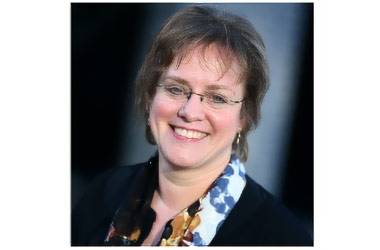Wittenborg Online News!
New Board Member has More than 30 Years of Top Academic Experience
New Board Member has More than 30 Years of Top Academic Experience
New Board Member has More than 30 Years of Top Academic Experience
https://www.wittenborg.eu/new-board-member-has-more-30-years-top-academic-experience.htm
Distinguished Educator, Dr Petra de Weerd-Nederhof, Joins Wittenborg's Advisory Board
With more than 30 years of academic experience under her belt, Dr Petra de Weerd-Nederhof is one of three new members to join Wittenborg University of Applied Sciences' Advisory Board this year. The two other members are Rijn Platteel (chair) and Paul Zevenbergen. De Weerd-Nederhof is currently professor in organisation studies and innovation at the University of Twente, but has held various other academic positions at the university throughout her career. She is also a member of Topvrouwen.nl - an initiative by the Dutch Ministry of Education and employer's association VNO-NCW aiming to boost the number of women in management positions.
De Weerd-Nederhof said she met Wittenborg CEO Maggie Feng years ago and has since been very impressed with the growth arc the institution has made. "Wittenborg is a very agile organisation, designed to be flexible and very aware of their unique position in the Dutch education landscape. Above all, in everything they do they are entrepreneurial. Maggie and Peter (Wittenborg's president) try things where other people would not. It would be very interesting to see how they continue to develop the organisation."
According to De Weerd-Nederhof, she is also intrigued by the school's personal approach to students. "I like the way Wittenborg takes care of its students – the individual attention to their well-being. I think the success of Wittenborg has a lot to do with the very specific characteristics of the people who run it."
She believes this personal approach to students as well as the diversity of both students and staff is what distinguishes Wittenborg from other universities of applied sciences in the Netherlands. As a member of the Board, she is looking forward to meeting and interacting with staff and students. "Management also encourages us to go to events."
De Weerd-Nederhof brings with her a wealth of experience to the job. "I know the higher education sector from a business administrative point of view and would like to make a contribution in that regard. Other areas of expertise are in the fields of innovation, resilience, entrepreneurship education (also on the executive level) and engaging with the region." From 2006 – 2011 and 2014 – 2017 she was Twente University's Programme Director: International Business Administration (BSc and MSc).
While in that position, she successfully redesigned the master's programme into five high-tech human touch specialisations: (1) Entrepreneurship, Innovation and Strategy, (2) Strategic Marketing and Business Information, (3) Purchasing and Supply Management, (4) HRM, Technology and Innovation and (5) Financial Management, implementing Twente's 'Research-Design-Organise' teaching philosophy.
She believes the pandemic brought about a steep learning curve in terms of online education and digital transformation in the education sector. "There are more possibilities. For instance, with online education we can now facilitate international students better. The pandemic also showed how important it is to have a personal approach to students, the importance of teamwork and creating a sense of community. I think it will be wise to keep strengthening that aspect."
De Weerd-Nederhof thinks it's too early to see how Dutch universities and universities of applied sciences faired in terms of riding out the storm brought about by the pandemic. "There will definitely be differences between bigger and smaller universities. I think we will have a better picture around September."
She said one of the things she misses is travelling. "There were some big conferences planned, for instance in China, which had to be cancelled. But this was also a good time to self-reflect and develop new teaching methods. Although at times it could be stressful, it was also inspiring.
WUP 28/2/2021
by Anesca Smith
©WUAS Press
621 words